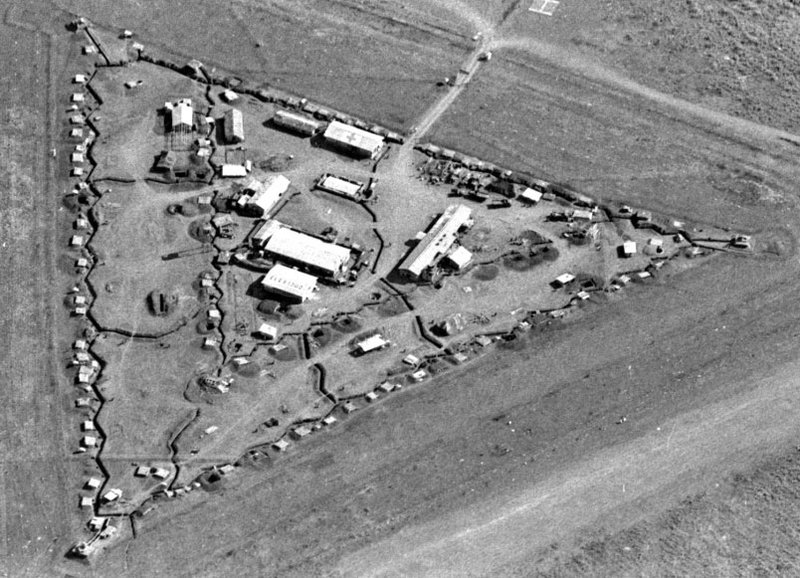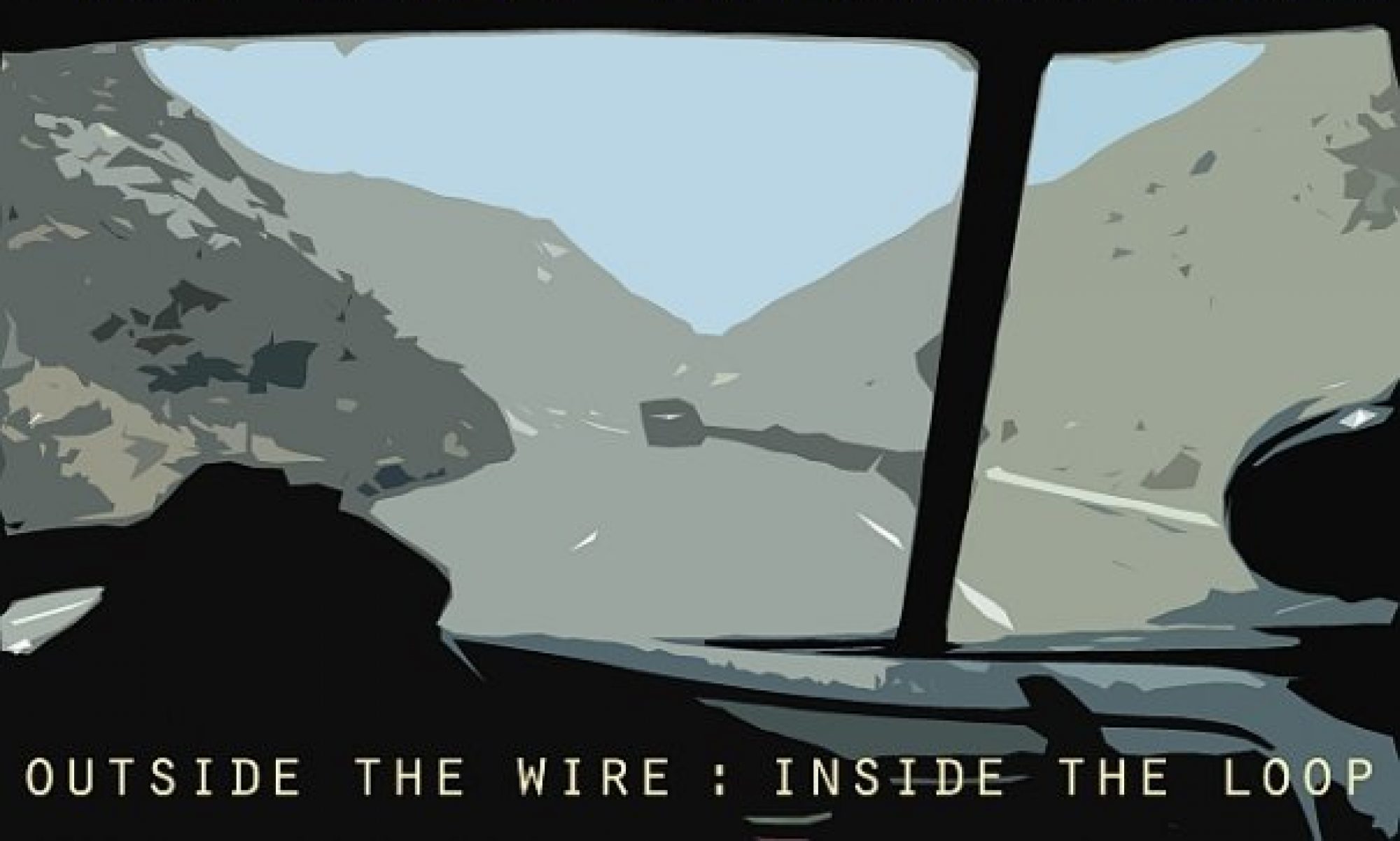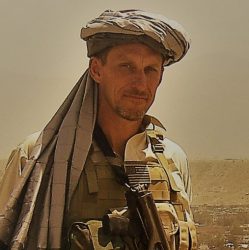The third episode of The Vietnam War aired last night and it was a good one. We were introduced to a Special Forces legend (and the founder of Delta Force) Charles Beckworth. He was interviewed just after preventing his small detachment of Green Berets from being over run in the battle of Plei Me. Then Major Beckworth had fought a week long battle pitting his 10 Americans, 14 South Vietnamese army soldiers and 300 Montagnard tribal fighters against the 32nd and 33rd Regiments of the North Vietnamese Army. Beckworth had 324 fighters against of force totaling 4,800. In last nights clip he paid his enemies the respect they were due with this quote “I wish I had 200 of them under my command”.

The attention Beckworth has received in the historical record and the subsequent attention another exceptional American commander, Hal Moore received was made possible by a third exceptional an American (reporter type) named Joe Galloway. Galloway was featured prominently in the broadcast, his book about LtCol Moore’s fight at LZ X-Ray (We Were Soldiers Once and Young) is a classic as is the movie of the same title. I’m not sure that those stories would be with us today were it not for the presence of Joe Galloway, who hails from Refugio Texas, a small rural town known for producing scrappy high school football teams, not great war correspondents.
We also heard from the NVA commander who fought against Moore’s battalion, Lo Khac Tam. Like Beckworth’s small force Hal Moore was facing an enemy 7 times his number. Despite the advantage of numerical superiority, effective direct fire weapons and surprise the NVA not only failed to destroy the Americans they took a savage beating.
Now promoted to General, Lo Khac Tam said the lesson he learned (one repeated in the companion book ad nauseam) is that one had to “grab the Americans by the belt” to negate their firepower. The North Vietnamese didn’t need to “learn” that lesson; they were trained by the Chinese who had discovered that bitter truth 15 years prior in Korea. That lesson didn’t help the NVA any more than it helped the Chinese. Getting inside the American indirect fire envelope did allow the Vietnamese to inflict more casualties on American units but they never dominated one. As soon as they broke contact they were still subjected to a beating from Tac Air and artillery.
Did we have stupid generals? Of course we did; the military history of America is littered with stupid generals whenever we get into a shooting war. The only time we ever caught a break was World War I where General Black Jack Pershing was placed in command (well ahead of many senior generals).
Did the NVA have stupid generals? They had Beucoup dummies which cost them dearly. During last night’s episode a Vietminh soldier is interviewed about the performance of the Marines and soldiers as they entered the war. He said they were big and slow and didn’t know the terrain like the local fighters who ran circles around them. True enough but thanks to some spectacularly poor NVA generalship and a steep learning curve by the Americans those local cadres were gone 14 months later. They had all been killed, wounded or fled north after the disaster of the 68 Tet offensive.
The myth that the American military was outclassed in Vietnam is just that, a myth, but one still being promulgated in this PBS series. But tactical lessons were not the focus of last nights show; how we got into a major shooting war was. That story, as Burn’s tells it, is complete, total, garbage and a significant disservice to anyone seeking an understanding of the Vietnam War.
Last night we heard a sage rebuke of General Westmorland who told a visiting Senator, Fritz Hollings that; “We’re killing these people at a rate of ten to one.” Hollings warned him, “Westy, the American people don’t care about the ten. They care about the one.” No doubt true but what about the American leadership? Did they give a damn about the one?
Watching the documentary you may think they did and this is where the whole story goes off the rails. As we listen into President Johnson’s anguished phone calls and watch what we are told was an uber competent Sec Def Robert McNamara cognate on how to win what we are not shown is their arrogance, naive stupidity or their contempt for their military leadership. Their refusal to listen to or follow good advice and their collusion with the North Vietnamese that led directly to the downing of American pilots is never mentioned.
The current National Security Adviser, Gen H.R. MacMaster wrote an entire book based on examining every document associated with the Vietnam effort during the critical decision making period of 1964 – 1965. The book is titled Dereliction of Duty: Johnson, McNamara, the Joint Chiefs of Staff, and the Lies That Led to Vietnam. From the conclusion of that book:
“The war in Vietnam was not lost in the field, nor was it lost on the front pages of the New York Times or the college campuses. It was lost in Washington, D.C.”
How is it that the most important book of the last decade that details exactly how we got into Vietnam is left out of an 18 episode narrative about Vietnam? Did you know that President Johnson and Secretary McNamara would crawl along the floor of the oval officer over a map of North Vietnam to select individual targets? Did you know that having selected those targets the Secretary of State, Dean Rusk would then pass those targets to the Swiss embassy who would tell the North Vietnamese (through their embassy in Hanoi) where and when we’d bomb them?
Here is what Rusk had to say about that:
“All we wanted to do is demonstrate to the North Vietnamese leadership that we could strike targets at will, but we didn’t want to kill innocent people. By giving the North Vietnamese advanced warning of the targets to be attacked, we thought they would tell the workers to go home.”
How stupid can ‘smart’ guys be? All of our previous history with communist governments would indicate that they not only would not tell workers about impending air strikes (civilian casualties being a huge boost for their propaganda machines and the lives lost meaningless to their leaders) but would move their anti aircraft artillery into the target area to down American planes. That’s exactly what they did too and it is beyond remarkable that Burns could ignore this fact and the scholarly rigor of H. R. MacMaster. What the hell is going on with these people?
What is going on with this series is exactly what has been going on inside big corporate media for decades and that is the promulgation and reinforcement of a narrative that is anti American exceptionalism, anti military in orientation, and an attempt to give the anti war left a pass on their dishonorable treatment of Vietnam veterans.
America is not Sparta. We are not a war-like people and as mentioned above normally lack competent generals and adequate force structure when the balloon goes up. We also normally lack good weapons; from the crap machineguns of World War I to the shitty tanks we started with in WW II to the completely inadequate anti tank weapons of Korea all the way to the unarmored Humvee’s of Iraq in 2003 our country always starts behind the curve militarily.
But we learn quick. What the military learned after Vietnam was how to take a hollowed out, racial divided, plagued with drug abuse, unpopular institution and turn into one of the most trusted segments of American society. Somehow I don’t think that story is going to make the cut with Burns and crew. And that, in the words of our Vietnam Vets, is number 10.



Your review and commentary are unbiased and excellent. I despise Ken Burns’ body of work and would not watch this series even if I were not a Vietnam vet. I am sick of the mass media treatment of that war and its veterans to this day (as I am equally sick of their “coverage” of all wars since). Thank you for your blog.
Thanks John and you too Rick. I was talking to Mac on All Marine Radio a couple of days ago and Mac wasn’t too sure that I wasn’t getting caught up in the weeds and missing the big picture. He has Vietnam Vets who like the series but after thinking about it for a good bit I’m sticking to my guns. Encouraging comments make that much easier. I really appreciate them and you guys too. My Dad won’t watch it either by the way.
After Tet, the NVA and Viet Cong had taken such a beating that they could not mount major operations for years afterwards. It was when Nixon began bombing the North that they came to the peace table. They had no intention of honoring that peace just as they did not honor the 1954 accords. Theirs was a war of conquest, not liberation as any South Vietnamese can tell you.
>What the military learned after Vietnam was how to take a hollowed out, racial divided, plagued with drug abuse, unpopular institution and turn into one of the most trusted segments of American society.
Well, yeah, partly by a series of stage “wars” against enemies like Panama and Grenada, and partly by having their psyops guys working with CNN: https://www.theguardian.com/world/2000/apr/12/julianborger
>America is not Sparta.
America is Athens, not Sparta. Sparta was dirt poor, gerontocratic, landbound, focused on itself. Athens was the glittering democracy which lived off its maritime empire.
Athens was much more aggressive than Sparta (look at the Sicilian Expedition) and very insistent that its client states adopt its political system (Sparta didn’t care-its client states did whatever they wanted internally.)
>We are not a war-like people and as mentioned above normally lack competent generals and adequate force structure when the balloon goes up. We also normally lack good weapons; from the crap machineguns of World War I
The US turned out more poison gas than all the other combatants during WW1, I believe. Also, US made weapons were being combat-tested en masse from, I think 1915 and onwards, as the US supplied the belligerents.
>to the shitty tanks we started with in WW II
The US started WW2 with B-17s and aircraft carriers. Pretty sure the Germans and Japanese, and even Italians, would have traded military industrial complexes with the US, if given the opportunity.
>to the completely inadequate anti tank weapons of Korea
Again-compare the awesome anti tank, anti aircraft and artillery weapons enjoyed by the North Koreans and Chinese. Not to mention their great air cover.
>all the way to the unarmored Humvee’s of Iraq in 2003
I’m pretty sure Saddam would have happily taken the US military, unarmored Humvees and all, over what he had to work with.
>our country always starts behind the curve militarily.
I’m seeing the opposite-it always outclasses the enemy, in those things that really matter, and manages to pull off…something less than stunning victory. WW2 excepted-but on the other hand, the net result off WW2 was half of Europe and most of Asia being handed to the Communists…